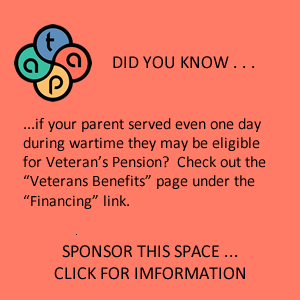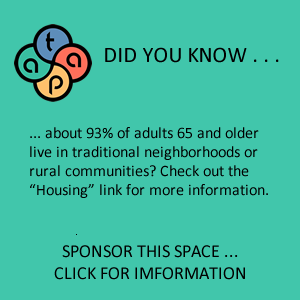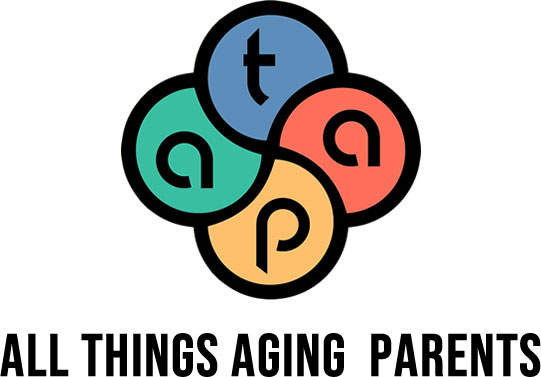As caregivers, we need help, but we don’t want to be seen as needy. According to one study, 42% of caregivers did not ask for help during a crisis. The last thing we need is someone to tell us to take care of ourselves when that sounds like just another thing we need to add to our already overloaded checklist of things to do. All of the ideas you will find here are great suggestions, but not all of them are for you. Pick and choose from what you see here. The goal is to help make your life easier, and can’t we all use some of that!
Support Groups: Family caregivers suffer a 50% higher rate of depression than non-caregivers, but are less likely to get help for it. If you have access to counseling, through a faith community, social services, or private practice, this can be a life-saving benefit to you. But if you are looking for something less formal, more conversational, you may want to look at a support group. All across the nation and the Internet you will find support groups for caregivers. Sometimes just knowing you are not alone helps, especially when you feel like no one in the world knows how hard this is. Talking with others can keep your situation in perspective and help you feel less isolated. It gives you a chance to vent your frustrations, learn new coping mechanisms, and get good advice. You can find good recommendations for support groups from local long term facilities for older adults. Social media is another good resource for finding options in your area, as is a simple Google search. Support groups for specific conditions may be found on the national websites for those conditions, for example, the American Cancer Society, or Alzheimer's Association.
Blogs: It is tremendously helpful to know that other people are in the same boat as you are. Reading other people’s stories can help you maintain perspective, find humor, or learn helpful tips that you can put into practice. It also gives you a non-threatening forum to ask questions. To find a recommended blog about caregiving, look at this list. Others are listed in the Resources section below.
Respite Care: Caregiving is a demanding task, and no one is really equipped to do it alone. When you are worn out and feel like you cannot do another thing, you are in need of respite care. “Respite” – that magic word meaning “a short period of rest or relief from something difficult or unpleasant” – may give you the distance you need to regain perspective, take a breath, run errands without having to watch the clock, have some “me” time or family time. Respite care involves someone coming to your parent’s home or taking your parent to a senior citizens center or adult day care center so that you can get a break.
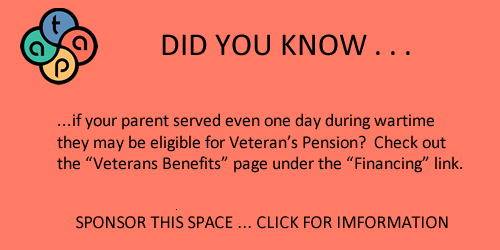
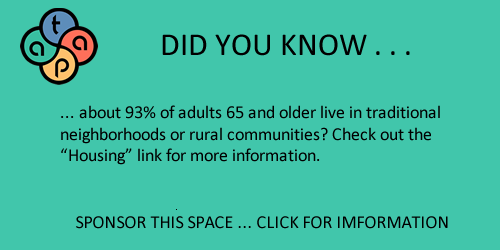
Arranging respite care may be something you want to discuss when you make your plan for caregiving. Maybe you have a friend or relative who would be willing to come to stay with your parent for an afternoon once a week. Or maybe your family members who live far away would come for a week to give you a complete break. You would be wise to plan for respite care before you reach the end of your rope, to prevent burnout. This also gives you the opportunity to try out a respite care provider before you need someone in an emergency situation. Home care agencies provide trained (non-medical) caregivers who can come for in-home respite service on an hourly basis. Unfortunately, these are usually not covered by insurance and must be paid out-of-pocket.
The ARCH National Respite Network has a Respite Provider Locator search and a search for Respite Funding. There are some government programs that do help provide funding for respite care. One of these is Medicaid's Home and Community-Based Services Waiver program. (Remember, Medicaid is a federal and state cooperative program, so check with your state’s Medicaid Office). Another program to check is VA Health and Medical Benefits for veterans. You should also check your local resources found on your Area Agency on Aging.
Assistive technology devices: One advantage to living in the 21st Century is the plethora of available technology that can make life easier for you and your parents. From voice-activated “Alexa” or Google home devices to video doorbells to hygiene products for less mobile adults to adaptive clothing for stroke victims, the industries that cater to older adults are booming, and will likely keep growing. We have put links to assistive technology ideas in our Resources below, but just want to mention one here that can provide a great deal of peace of mind. Medical alert systems enable your parent to press a wearable call button if they fall or need other help. They are put into contact with a dispatcher who can notify you, a friend, or emergency services, if needed. You might think that a cell phone would work just as well, but the chances are very high that your parent might walk off and leave the phone beside the chair. A wearable pendant or bracelet eliminates that concern. Some alert systems also offer a fall-detection feature if your parent is at high risk for falls. Consumer Reports has a comprehensive review of several systems. These systems are paid for out-of-pocket.
On our Home and Community-Based Services page you can find more information on additional supports including: Geriatric Care Managers, Transportation, Home Care Agencies, Home Health Agencies, and Adult Day Care Centers. Other helpful information can be found with an Internet search on topics such as fall prevention, local food pantries, and Meals on Wheels.
Resources:
Support Groups:
- https://www.daughterhood.org/
- https://thecaregiverspace.org/3-tips-on-how-to-find-caregiver-support-groups/
- https://dailycaring.com/11-caregiver-support-groups-on-facebook-youll-want-to-join/
Blogs:
Respite Care:
- https://archrespite.org/respitelocator
- https://acl.gov/programs/support-caregivers/national-family-caregiver-support-program
- https://www.helpguide.org/articles/caregiving/respite-care.htm/
- https://www.alz.org/help-support/caregiving/care-options/respite-care
- https://www.care.com/c/stories/5768/how-do-i-pay-for-respite-care/
Assistive Technology:
- https://www.aplaceformom.com/blog/must-have-assistive-devices-for-seniors/
- https://www.seniorliving.org/products/atds/
- https://www.familymattershc.com/assistive-devices-for-seniors/
Additional Services:
- https://www.mayoclinic.org/healthy-lifestyle/healthy-aging/in-depth/fall-prevention/art-20047358
- https://www.ncoa.org/healthy-aging/falls-prevention/preventing-falls-tips-for-older-adults-and-caregivers/6-steps-to-protect-your-older-loved-one-from-a-fall/
- AuntBertha.com
- https://www.artisanelevators.com/articles/home-adaptive-aids/
For food pantries near you, search for "food pantries [your zip code]"
